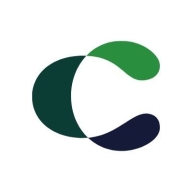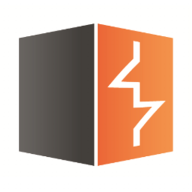

PortSwigger Burp Suite Professional and Contrast Security Assess are tools in the web application security testing category. PortSwigger Burp Suite Professional appears to have the upper hand in competitive pricing and user satisfaction in support, while Contrast Security Assess is noted for having advanced features and perceived value.
Features: PortSwigger Burp Suite Professional is recognized for its comprehensive manual testing tools, integration capabilities, and extensive functionality for testing web applications. Contrast Security Assess is distinguished by automatic vulnerability detection, a robust set of integrations, and ease of use in continuous integration workflows.
Room for Improvement: PortSwigger Burp Suite Professional users suggest enhancements in reducing false positives, improving automated scanning capabilities, and increasing customization options. Contrast Security Assess users recommend refining customization options, streamlining setup complexity, and offering more scalable solutions.
Ease of Deployment and Customer Service: PortSwigger Burp Suite Professional is known for its easy deployment process and reliable customer support. Contrast Security Assess provides smooth deployment in integrated environments, though it may need additional support resources for optimal use.
Pricing and ROI: PortSwigger Burp Suite Professional is recognized for cost-effectiveness and delivering strong ROI, with users quickly benefiting from initial investments. Contrast Security Assess, while higher in cost, justifies its expense through outstanding features that offer substantial long-term value.
| Product | Mindshare (%) |
|---|---|
| PortSwigger Burp Suite Professional | 2.7% |
| Contrast Security Assess | 1.3% |
| Other | 96.0% |
| Company Size | Count |
|---|---|
| Small Business | 2 |
| Midsize Enterprise | 3 |
| Large Enterprise | 6 |
| Company Size | Count |
|---|---|
| Small Business | 17 |
| Midsize Enterprise | 14 |
| Large Enterprise | 35 |
Contrast Security is the world’s leading provider of security technology that enables software applications to protect themselves against cyberattacks, heralding the new era of self-protecting software. Contrast's patented deep security instrumentation is the breakthrough technology that enables highly accurate assessment and always-on protection of an entire application portfolio, without disruptive scanning or expensive security experts. Only Contrast has sensors that work actively inside applications to uncover vulnerabilities, prevent data breaches, and secure the entire enterprise from development, to operations, to production.
Burp Suite Professional, by PortSwigger, is the world’s leading toolkit for web security testing. Over 52,000 users worldwide, across all industries and organization sizes, trust Burp Suite Professional to find more vulnerabilities, faster. With expertly-engineered manual and automated tooling, you're able to test smarter - not harder.
PortSwigger is the web security company that is enabling the world to secure the web. Over 50,000 security engineers rely on our software and expertise to secure their world.
We monitor all Application Security Tools reviews to prevent fraudulent reviews and keep review quality high. We do not post reviews by company employees or direct competitors. We validate each review for authenticity via cross-reference with LinkedIn, and personal follow-up with the reviewer when necessary.